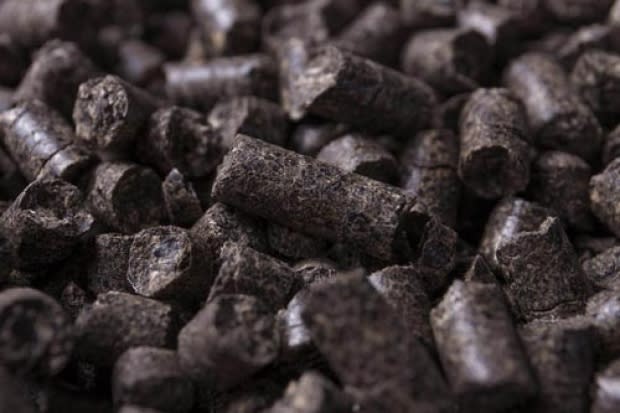Former B.C. sawmill gets fresh start as wood pellet plant
A sawmill in McBride, B.C., that shutdown 13 years ago is getting a new life as a wood pellet plant.
Boreal BioEnergy, a B.C.-based forestry company, has purchased the site and started building the new plant in the community about 200 kilometres southeast of Prince George in the central Interior.
"We're well into our engineering and we're hoping to start our civil works this fall," company CEO Jason Janus told Daybreak North host Carolina de Ryk.
Construction is expected to start early next year and the plant will begin operations in late 2020. Once it's fully operational, it will produce up to 250,000 tonnes of black pellets each year, creating 50 to 60 jobs for the region.
The plant's first shipment of wood pellets is scheduled to arrive in Japan in 2021.
"It makes sense that McBride is the location for the first torrefied wood pellet mill," McBride Mayor Gene Rutz said in a news release. "We have good, hard-working people in the Robson Valley to provide a workforce that Boreal can count on."

Torrefaction is a process in which wood biomass is heated in the absence of oxygen to produce a fuel that burns more like coal than the original wood fibre.
Janus expects the plant will be in business for at least 15 years, based on contracts with purchasers.
"I think there is definitely a niche for pellet producers to be able to fill some of that forestry gap because unlike the forestry industry, which is subject to price changes and fluctuations, we tend to operate more like ... a commodity — like coal," he said. "So we can do future planning with a great deal more certainty."
The plant's primary source of fibre is wood waste — the bits of wood that no one else wants to use. They then torrefy it before it goes to market.
"The fibre source is ideal for the pellet plant as we have poor-quality cedar and hemlock in the area and lots of deciduous tree species on private land," Rutz said.
Janus said the company is also looking at doing the same in Fort Nelson and Fort St. John in northeastern B.C., both at old sawmill sites. He said he hopes to be in the pre-engineering phase for both of those plants by this fall.
"Scenarios where we can establish ourselves in an existing site with the infrastructure already there obviously make sure our capital costs significantly less," Janus said.

